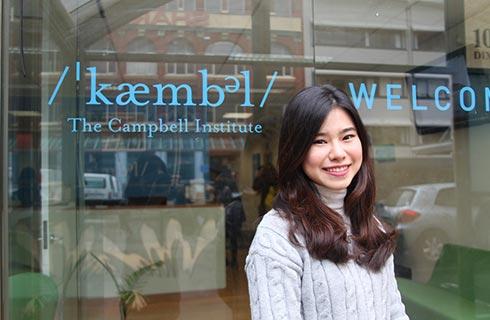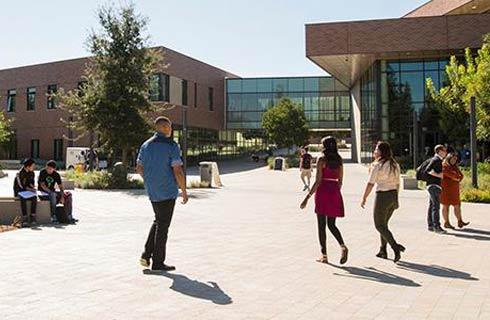公共卫生硕士-全球卫生专业
Master of Public Health - Global Health Specialization

学历文凭
Masters Degree

专业院系

开学时间

课程时长

课程学费

国际学生入学条件
Provide a personal statement that describes your interest in public health and demonstrates your understanding of public health concepts.
In addition to completing the ‘Experience’ and ‘Achievements’ sections of the SOPHAS application, you must submit a comprehensive resume or curriculum vitae.
SOPHAS requires that you provide information for a minimum of three references to receive requests for recommendations (evaluations) to be submitted electronically. The Brown School will review your application with two evaluations submitted, providing all other parts of the application are complete.
TOEFL: 100 iBT (600 pbt, 250 cbt)
IELTS: 7.0 overall band score
IDP—雅思考试联合主办方

雅思考试总分
7.0
- 雅思总分:7
- 托福网考总分:100
- 托福笔试总分:600
- 其他语言考试:NA
CRICOS代码:
申请截止日期: 请与IDP联系 以获取详细信息。
课程简介
Our two-year, 52-credit-hour degree, accredited by the Council on Education for Public Health, provides you with the knowledge, skills and tools you need to take on leadership in the field of public health. This innovative curriculum was designed to be different, focused on understanding problems and creating solutions using transdisciplinary approaches. It includes outstanding research opportunities, real-world learning experiences through practicum, and unique classes and course packages.<br><br>The Global Health specialization prepares students to confront complex issues primarily impacting resource-poor populations around the world. Students learn the basic biology and epidemiology of major infectious and chronic diseases, as well as other health conditions contributing significantly to global health inequity. Underlying risk factors for these conditions, such as socio-economic determinants and environmental exposures, are explored. The curriculum builds a context-specific understanding of the root causes that lead to health outcomes. Coursework emphasizes transdisciplinary problem solving approaches and students learn to integrate multiple sectors to build creative solutions. Students are prepared to create program and policy solutions that address pressing global health issues. Throughout the program, students are exposed to best strategies to support vulnerable groups such as infants, young children, adolescents, and pregnant and lactating women. Graduates pursue careers in multi-lateral organizations (WHO, World Bank), the U.S. Federal Government (CDC, USAID), non-govermental organizations based in the U.S. and abroad (Save the Children, Helen Keller International), as well as academic research or policy centers.
相关申请
 预科
预科 奖学金
奖学金 实习机会
实习机会 在校学习
在校学习 跨境学习
跨境学习 校园授课-线上开始
校园授课-线上开始 在线/远程学习
在线/远程学习
学校排名

世界排名54
数据源:
泰晤士高等教育世界大学排名
关于圣路易斯华盛顿大学

圣路易斯华盛顿大学并不是什么“分校”,而是完全独立且实力与排名秒杀西海岸那个UW的私立精英大学。其入学竞争激烈程度和哥伦比亚大学并列排名第5。相关专业学院也是排名显赫:乔治沃伦布朗社会工作学院排名全美第1,医学院排名全美第3,建筑学院排名全美第4,工程学院的生物医学工程系排名全美第12,法学院和Olin商学院排名全美第19。宿舍要比很多中产阶级的住宅还要好圣路易斯华盛顿大学提供丰富多彩的休闲活动,其毗邻森林公园的地理位置为其提供了这方面的便利。高尔夫课程,溜冰场,动物园,可划船的湖泊,艺术历史博物馆,露天剧场以及科学中心都步行即可到达。对于那些距离较远的学生活动场所,学校提供免费的班车服务。大部分宿舍都建在在一个叫做南40的地方,这块面积为40英亩的地方紧挨教学区。所有宿舍配备了空调,且为男女混住,一些校舍还有可容纳六到八人的大套间。新生都可以申请到宿舍,且可保证下一年续住成功。
本校相关课程

工程管理硕士
学历文凭
Masters Degree
开学日期
课程费用总额


项目管理研究生证书
学历文凭
Graduate Certificate
开学日期
课程费用总额


物理疗法医生
学历文凭
Ph.D.
开学日期
课程费用总额


戏剧和表演研究文学硕士
学历文凭
Masters Degree
开学日期
课程费用总额


Master of Science in Biostatistics and Data Science
学历文凭
Masters Degree
开学日期
课程费用总额


Bachelor of Arts in Environmental Policy
学历文凭
Bachelor Degree
开学日期
课程费用总额

其他相关课程

公共卫生学士
 布鲁克大学
布鲁克大学学历文凭
Bachelor Degree
开学日期
课程费用总额


职业与公共卫生应用科学学士学位-公共卫生与安全
 多伦多都会大学
多伦多都会大学学历文凭
Bachelor Degree
开学日期
课程费用总额


人口健康风险评估与管理研究生文凭
 渥太华大学
渥太华大学泰晤士高等教育世界大学排名:188
学历文凭
Graduate Diploma
开学日期
课程费用总额


公共卫生理学硕士(非论文)
 麦吉尔大学继续教育学院
麦吉尔大学继续教育学院学历文凭
Masters Degree
开学日期
课程费用总额


公共卫生硕士
 西蒙菲莎大学
西蒙菲莎大学学历文凭
Masters Degree
开学日期
课程费用总额


社区卫生科学哲学博士
 卡尔加里大学
卡尔加里大学学历文凭
Ph.D.
开学日期
课程费用总额









 美国
美国